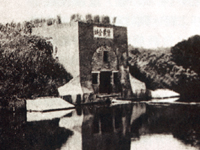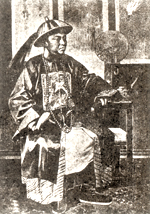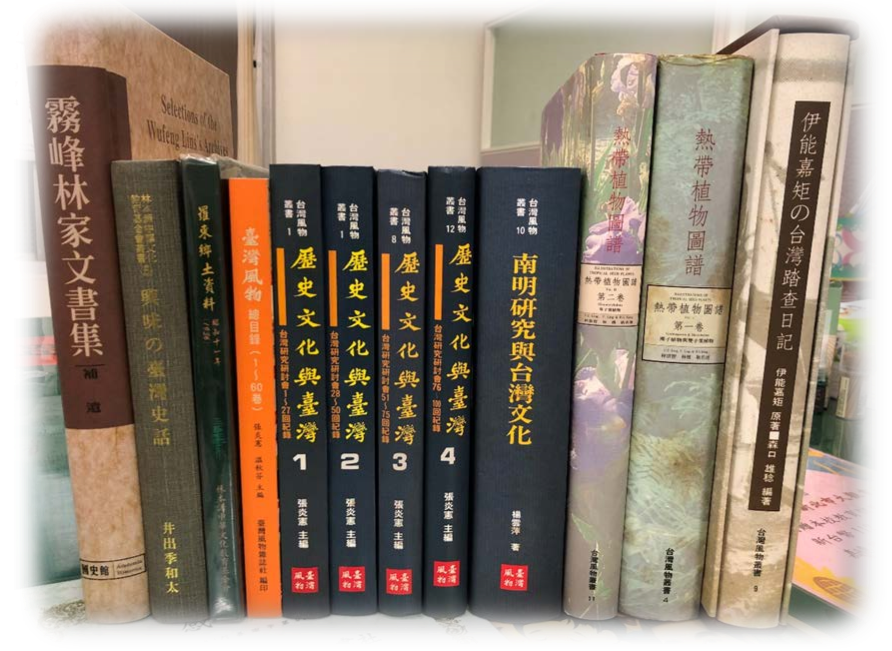 從東亞國際情勢的觀點談「牡丹社事件」
從東亞國際情勢的觀點談「牡丹社事件」
The Mutan Village Incident:
It’s significance for East Asian geopolitics
林呈蓉/Lin Cheng-jung
(淡江大學歷史系副教授)
(Associate Professor, Tamkang University Department of History)
2001-06-11
 Photo portrait of Rev. Mackay.
Photo portrait of Rev. Mackay.
May 22, 1874 – Japanese troopsengage in armed conflict withAborigines at Shihmen in theHengchun region.
1874年5月22日,日軍在恆春附近的石門與原住民發生激戰。
清同治十年(1871年),66名琉球宮谷島人因海難而漂流至台灣南端的八瑤灣,誤入牡丹社,其中54名因而遭當地原住民殺害。對台灣素有野心的日本及以保護琉球居民為藉口於清同治十三年三月出兵台灣,此即牡丹社事件。在此事件發生的過程中,清朝政府扮演著什麼樣的角色?這場尚未交鋒即以賠償金結束的戰役對日、清兩國在東亞國際情勢裡又造成什麼樣的影響?本週「台灣歷史之窗」特別邀請淡江大學歷史系教授林呈蓉談「牡丹社事件」發生的歷史背景及其影響。
In Year 10 of the Ch’ing Dynasty T’ung-ChihReign Period, or 1871, 66 seamen from MiyakoIsland (宮谷島) in the Ryukyu Archipelago, orOkinawa, were shipwrecked at Payao Bay(八瑤灣) near the southern tip of Taiwan,where 54 of them were subsequently killed bylocal Aborigines upon stumbling into MutanVillage (牡丹社). In the 3rd month ofT’ung-Chih Year 13, the Japanese, whotheretofore harbored designs on Taiwan,deployed an expeditionary force to Taiwan onthe pretext of protecting Okinawans, settinginto motion the series of events which go bythe name “Mutan Village Incident.” What roledid the Ch’ing government played in the courseof this incident? And what influence did thismilitary expedition, which ended with areparations payment before furtherhostilities had a chance to erupt, have uponthe respective international statuses ofCh’ing Dynasty China and Japan in East Asia.?This week’s Window on Taiwan invites Prof.Lin Cheng-jung of the Tamkang UniversityHistory Department to discuss the historicalbackground and aftermath of the Mutan VillageIncident.
事件的發端
為了解決長久以來台灣海域上的外籍受難船隻屢遭島上原住民侵犯的問題,1874年5 月,日本派員三千六百人在陸軍中將西鄉從道指揮下出兵台灣。在懲治島上原住民之後,重新與之交睦,並賜予日章旗及印章,以為日後交流之標記。
Roots of the incident
For the declared purpose of resolving thelong-standing problem of Taiwan Aborigineattacks upon Japanese seamen stranded in Taiwanterritorial waters, in May of 1874, Japan senta contingent of 3600 soldiers to Taiwan underthe command of army Lt. Gen. SaigoTsugumichi(西鄉從道). Following the punitiveexpedition against the Aborigines, the Japaneseestablished friendly relationships with them,presenting them with Japanese ceremonialbanners and seals for use in subsequentofficial communications.
日本軍出師的具體名義,先是以1871年12月,一艘從那霸出發的宮古島船在歸返途中遭逢暴風雨侵襲,漂流至台灣南部東岸八瑤灣附近,倖存上岸台灣島的六十六名乘員中,有五十四名竟被島上原住民高士佛社、牡丹社人所殺害;
Japan’s pretext for sending this Japaneseexpeditionary force was as follows:* First, in December of 1871, a MiyakoIsland (宮古島) boat sailing from Nahaencountered a storm at sea on its returnvoyage, as the result of which it was castonto the southeastern coast of Taiwan nearPayao Bay (八瑤灣). Of the 66 crewmen whowere so fortunate as to land there, 54 werekilled by Aborigines from Kaoshihfo (高士佛)and Mutan (牡丹) Villages.
接著,1873年3 月又有日本小田縣(今岡山縣)的船頭佐籐利八等四人,在出海貿易途中,亦遭暴風雨侵襲而漂流至台灣東部馬武窟附近,衣物遭台灣原住民所掠奪。
* Subsequently, in March of 1873, four seamenincluding ship’s captain Sato Hachi(佐籐利八) from Oda Prefecture (小田縣,present-day Okayama Prefecture – 岡山縣),while on a trading voyage were also blown bya storm to the vicinity of Mawuku (馬武窟)in eastern Taiwan, where Aborigines made offwith their clothing.
雖然日本方面曾試圖訴諸外交途徑來謀求解決之道,但是一如過去歐美遭難船之經驗,清國方面總以「化外之地、化外之民」為由來推諉責任。於是,日本乃在「清國無法處理此等情事」的認知前提下,出兵台灣,懲治島上的原住民。
Although the Japanese authorities at firstsought to resolve this problem throughdiplomatic channels, nevertheless, as inearlier instances of European and Americanships stranded in Taiwan, the Ch’ingauthorities continued to deny responsibility,based on the principle that “those areuncivilized people in outer fringes ofcivilization” Consequently, under the premisethat “the Ch’ing Empire is unable to dealwith this sort of affair,” Japan sent troopsto Taiwan for punitive action against theisland’s Aborigines.
值得玩味的是:1871年12月牡丹社事件發生當時,日本方面為何沒有馬上派兵懲治原住民?而長久以來主張對台灣具有主權的清帝國在此一事件中,到底扮演著如何的角色?
Worth pondering are the questions, (a) whydidn’t the Japanese immediately send apunitive expedition against the Aboriginesafter the December 1871 Mutan Villageincident, and (b) exactly what role wasplayed in this incident by the Ch’inggovernment, which had long claimedsuzerainty over Taiwan?
台灣海域上的受難船漂流至島上而遭原住民迫害,此次並非頭一遭。1867年3 月美籍受難船所引發的羅發號(Rover )事件就是另一個活生生的案例。歐美列強為了此類事件,屢屢向清帝國政府尋求解決之道,然而一直都不得要領。羅發號事件之後,美國駐廈門領事李仙得(Charles W. Le Gendre)在求助無門的情況下,乃毅然直抵台灣與原住民酋長卓杞篤(Tauketok)見面,並相互達成了船難救助協議。換言之,至少從這類情事上,充分表現出島上二元政權的屬性。李仙得也基於這樣的事態而提出其「蕃地無主論」的看法,甚至寫了一本書《IsAboriginal Formosa a Part of theChinese Empire?》(台灣原住民地區是中華帝國的一部份嗎?),成為日後日本的台灣出兵行為之理論依據。
This 1871 incident was by no means the firstinstance of seamen stranded in Taiwan beingattacked by Aborigines. The Rover Incident inMarch of 1867, involving a shipwreckedAmerican-registration vessel, the Rover, isa prominent case in point. The Euro-Americanhegemons had repeatedly sought resolution ofthe problem from the Ch’ing government withouttheir eliciting any substantive official actionon the part of the Ch’ing government. In theaftermath of the Rover Incident, and in theabsence of any alternate avenue of redress,the American Consul to Amoy, Charles W. Le Gendre, boldly traveled directly to Taiwan andmet with Aborigine chief Tauketok, with whom henegotiated a nautical disaster relief agreement.In other words, judging at least from this sortof event, the Rover Incident clearly revealed asort of dual-jurisdiction situation. Moreover,based on this sort of circumstance, Le Gendreenuciated his “barbarian-land anarchy” theory蕃地無主論 , and even wrote a book entitled “IsAboriginal Formosa a Part of the Chinese Empire?”which contributed to Japan’s theoreticaljustification for its later military actionin Taiwan.
國際媒體的報導
當1871年船難問題再度發生時,西方媒體則做了如下的報導。
International news media reports
When the 1871 shipwreck incident occurred,Western media published the followingreports:
New York Times 1872年10月24日 來自舊金山的消息說「數名的日本人船員在台灣遭遇船難,並被原住民所吞食。琉球王派遣使節前往江戶〔今東京〕,試圖在報復措施上求取援助」;
* The October 24, 1872 issue of the New YorkTimes carried a report from a San Franciscosource stating, “A number of Japanese seamenshipwrecked in Taiwan were cannibalized byits aborigines. The King of Okinawa sent anemissary to Edo [present-day Tokyo] in anattempt to secure assistance regardingmeasures for retaliation.”
上海發行的North China Herald同日也轉載了Japan Gazette的消息說「最近從薩摩縣 〔今鹿兒島縣〕送來了台灣食人事件的報告,令日本的政府高官感到非常戰慄。被認為是隸屬於薩摩侯所管的琉球諸島,有數艘戎克船漂流至台灣的海岸邊。根據送到日本的消息是,戎克船上的乘員被島人所吞食......。此外,日本方面則有所苦情,即日本對琉球的領有權等相關疑問。然而,在我們的印象中則以為,日本對琉球的領有權應該是被國際所承認的」。
* On the same date, Shanghai’s North ChinaHerald reprinted a Japan Gazette report stating,”Recent reports from Satsuma [ 薩摩,present-day Kagoshima – 鹿兒島] Prefectureof a cannibalization incident in Taiwan hasmade high-level Japanese authoritiesextremely horrified. A number of junk boatsclaimed to be under the jurisdiction of theRyukyu Islands ruled by the Duke of Satsumadrifted onto the coast of Taiwan. Accordingto Japanese news sources, the seamen of thesejunk boats were cannibalized by the islandinhabitants…… In this connection, theJapanese authorities are additionally facingproblems with regard to their territorialclaims on the Ryukyu Archipelago and relatedquestions. It is our impression, however, thatJapan’s claims to suzerainty over thearchipelago are internationally recognized.”
從上述的兩則報導中可以確知歐美人士對於台灣原住民存有許多畏怖與誤解;另一方面,琉球船的台灣遭難事件,從肇事責任的歸屬開始所牽引出的不只是台灣,還包括了琉球的主權問題。
From the above-quoted two reports, we canclearly see that (a) Europeans and Americanshad a number of fears and misunderstandingsabout Taiwan’s Aborigines and (b) the matterof assigning responsibility for the harm doneto Okinawan seamen brought up the question ofsovereignty not only over Taiwan but overOkinawa as well.
歐美強權的立場
但是出乎意料地,當出兵台灣的政策被確立的同時,卻遭致以英、美為首等列強之干涉。其主要的原因在於,位居十九世紀世界強權的英國極度擔心,清、日之間的紛爭可能會對英國資本在東亞地區的經濟活動有所影響,進而傷害了英國商民在該地區的經濟利益。在英國的威勢下,以美國為首的歐美國家對日本的出兵行為,採取警戒態度,批評這樣的行為是違反萬國公法,並強調以安全保障為由所訴諸之武力干涉,將不會被國際社會所承認。此時,美國的駐日公使一職已改由 John A. Bingham擔任,新任公使對於日本的台灣遠征行為改採強硬姿態,並追隨英國的做法,禁止任何美國人與美籍船參與此項出兵計畫。
Policy positions of European and Americanpowers
Unexpectedly, however, at the same timethe decision was made to send anexpeditionary force to Taiwan, it met withthe intervention of Western powers led byEngland and the United States. It’s mainreason was the concern of the 19th centuryBritish hegemonic power regarding theinfluence which the conflict between theCh’ing and Japanese governments might haveupon the British financial activity inEast Asia, and the possible damage to theeconomic interests of British traders inthe region. Under the paramount influenceof British power, but primarily throughthe immediate agency of the Americangovernment, Western countries adopted anattitude of grave concern with regard toJapan’s mobilization of military force,criticizing such action as a violation ofinternational laws governingintergovernmental relations, andemphasizing that, an armed interventionin the name of national security wouldnot be tolerated by the internationalcommunity. At the time, John A. Bingham,who had just been newly appointed asambassador to Japan, took a rigid stancein opposition to Japan’s deployment of anarmed force to Taiwan and, followingBritain’s lead, prohibited Americancitizens or ships from taking part insuch activity.
值此之際,列強對於問題思考的邏輯則在於,日本的台灣出兵行為就好比「他國突然派遣三千名軍隊上陸北海道」的道理一樣缺乏說服力。縱然李仙得所抱持的「蕃地無主論」在地理根據上有其正當性,而清國也的確無法明確主張自己的「領有權」;但是也沒有任何證據顯示清國已經放棄了其對東部台灣的權益關係,倘若有他國企圖要征服「蕃地」,則清國自可在安全保障的理由下訴諸武力,而這種行為將會被國際社會所接受。當時的國際輿論,基本上仍在「台灣乃屬中國版圖」的認知下做評論,這樣的結果著實令日本外交界感到意外與震驚。
The governing logic underlying Western powers’consideration of the circumstances of thatmoment was that Japan’s rationale for sendingan expeditionary force to Taiwan was no moreconvincing that any rationale for “anothercountry suddenly sending 3000 troops toHokaido.” Even assuming that there was somevalidity to Le Gendre’s “barbarian-landanarchy” theory 蕃地無主論 , and that theCh’ing government had no grounds for assertingits sovereignty, it was nevertheless likewisetrue that there was no evidence to show thatthe Ch’ing government had renounced its claimto sovereignty over eastern Taiwan. Ifanother country [in this case Japan] haddesigns to conquer this so-called “BarbarianLand,” then the Ch’ing government couldsimilarly cite its national security as apretext for mounting a military response,which would be deemed acceptable in the eyesof the international community. Regardless,the international consensus of the time wascritical of Japan, based on its identificationof Taiwan as a territory of China. Thisoutcome indeed bewildered and stunned theJapanese diplomatic community.

In the aftermath of the MutanVillage Incident 沈葆楨 ChenPao-chen petitions the Ch’ingCourt to strengthen Taiwandefenses and institute a policyof “opening mountain regionsand assisting the savages.”
牡丹社事件後,沈葆楨奏請清廷加強台灣防務,並實施「開山撫蕃」政策
事件的終結
在英、美等強權壓力下,日本雖然仍出兵台灣,並懲治了肇事的原住民,而且清國也派遣萬人大軍抵台與之對峙,但是清、日之間雙方並沒有直接發生衝突。在英國駐清公使威妥瑪(Thomas, Wade)的斡旋下,1874年10月31日雙方簽下了一份北京專約,以由清國提出補償金來交換日本的撤兵,避免了戰爭情事的發生。其條約內容重點如下:1.清國政府必須承認日本的出兵台灣是「保民義舉」。2.清國政府提出五十萬兩為賠償金,其中十萬兩是受難家屬的撫卹金,另四十萬兩則是買回日本在蕃地所建設之道路與建物的所有權。
Resolution of the incident
Although, in defiance of British andAmerican pressure, Japan deployed troopsto Taiwan and took punitive action againstthe Aborigines involved in the MutanVillage Incident, and although the Ch’inggovernment deployed 10,000 troops toTaiwan to counter them, there occurred nodirect conflict between Ch’ing andJapanese troops. Through the arbitration ofBritish ambassador to the Ch’ing court,Thomas Wade, a treaty was signed by thetwo sides on October 31, 1874, whereby theCh’ing government paid reparations inreturn for the withdrawal of Japanesetroops, thereby averting war. The treaty’smain stipulations included: * Ch’ing government acknowledgement thatthe Japanese deployment of troops had beenfor the purpose of protecting of itsnationals.* Ch’ing government compensation in theamount of 500,000 taels of gold, including100,000 taels as consolation payments tofamilies of the deceased, and 400,000taels for the purchase of ownership rightsto roads and buildings constructed by theJapanese in the “barbarian land.”
對於這樣的結果,英國駐日公使巴夏禮(Harry S. Parkes)評論說「被侵略者卻必須交付償金的道理,令人感到費解。日本實無收受償金的資格」。根據申報1874年11月9 、10兩日之社論所述,清政府方面倒是很釋懷地認為「使日本先行派兵征伐生蕃,的確是一大失策。但是做一點讓步,以五十萬兩的金額迴避戰事,免除了數年份的損失,而得以大事化小,小事化無,亦不失為上策。相對地,我國對於台灣所具有之統治責任則得以彰顯,進而禁止外國之妄舉。日本為此也花費了三、四百萬兩,今後勢必會堅戒類此之愚行」。
source stating, “A number of Japanese seamenRemarking critically on this outcome, Britishambassador to Japan Harry S. Parkes stated,”The proposition that a victim of invasionshould have to pay reparations isincomprehensible! Japan certainly has noright to receive any compensation.”According to Shen Pao (申報) newspapereditorials published on October 9-10, 1874,the Ch’ing government nevertheless veryreassuringly opined that, “Allowing Japanto send troops to attack the barbarians wasindeed a major mistake. However, thenegligible concession of using the sum of500,000 gold taels to avert war andmulti-year losses, rendering major problemssmall and small ones nonexistent, cannot bedenied as a superior strategy. At the sametime, our country’s sovereign responsibilityfor Taiwan has become manifest, serving toforestall further foreign aggression. Forthis [invasion of Taiwan], Japan spent 3-4million taels of gold, for which reason itwill certainly refrain from such unwiseaction in the future.”
承如申報社論所述,為了懲治台灣原住民而實際花費了近約七百七十萬兩的公帑,對當時已瀕臨破產邊緣的日本新政府財政而言,整個事件幕後的黑手巖倉具視‧大久保利通通陣營,幾乎可以「罪萬萬」而被申請處分。
True to what the Shen Pao editorials said,given the fact that the actual expenditurefor the punitive expedition against theTaiwan Aborigines amounted to 7,700,000taels of state treasury , from the point ofview of the nearly bankrupt Finance Ministryof the new Japanese government of the time,the instigators behind the whole incident,Ewakula tomomi (巖倉具視)and Okubotoshimichi(大久保利通) and their cliquesmight well have been indicted for a long listof charges.
但是「鹿死誰手」仍未知曉。北京會談的結果,根據條約內容,出現了「台灣生蕃」加害「日本國屬民等」、日本出兵的目的是「保民義舉」等用語;此外清國政府所支給的「撫卹金」是由日本政府轉交受難者遺族,此等行逕自然表示清國已同意「遭難的琉球人可以被解釋為是日本國民」。於是,日本對琉球的統治權逐漸受到國際社會所認同,而清國對琉球宗主權之主張的理論根據相對地變得薄弱起來。日本藉由如此之情勢,自然了斷了琉球與清國之間的從屬關係,日本的「琉球併合」政策乃得以逐步推動。
There nonetheless remained some ambiguityas to who was the final beneficiary in thisincident. As the result of the Beijingconference which resolved the incident,there appeared in the final treaty suchlanguage as, “Taiwan savages did harm toJapanese nationals” and acknowledgementthat the aim of Japan’s expeditionary forcewas “to protect and obtain justice for itspeople.” This, together with the fact thatthe consolation money paid by the Ch’inggovernment was disbursed to the families ofthe deceased through the auspices of theJapanese government, was tantamount to theCh’ing government’s admission that theRyukyu Islander castaways could beconsidered as Japanese citizens. Hence,Japan’s sovereignty over the Ryukyusgradually came to be recognized by theInternational community, while, conversely,the theoretical basis for Ch’ing DynastyChina’s claim of traditional sovereigntyover the Ryukyus became weakened. Giventhese circumstances, Japan had of coursebroken the dominion relationship betweenthe Ryukyus and Ch’ing Dynasty China,giving a major impetus to Japan’s policyof merger with the Ryukyus.
牡丹社事件的發生,帶給清國政府的暗示是「清帝國已經失去其扮演東亞國際社會中心的角色地位」,以及從此埋下了日‧清對立的宿怨關係。
The Mutan Village Incident brought with ita hint to the Ch’ing government that theCh’ing Empire had already lost its statureas the lead character on the East Asianinternational stage, while at the same timeplanting the seeds for a longer-termgrudge-bearing enmity between Japan andChina.
Compiled and edited by Tina Lee/Translated by James Decker
籌備編輯李美儀/英文翻譯曹篤明









